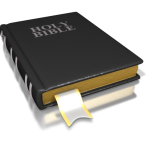
What the WCF says about Scripture
3. The books commonly called Apocrypha, not being of divine inspiration, are no part of the canon of the Scripture, and therefore are of no authority in the church of God, nor to be any otherwise approved, or made use of, than other human writings.
4. The authority of the Holy Scripture, for which it ought to be believed, and obeyed, dependeth not upon the testimony of any man, or church; but wholly upon God (who is truth itself) the author thereof: and therefore it is to be received, because it is the Word of God.
5. We may be moved and induced by the testimony of the church to an high and reverent esteem of the Holy Scripture. And the heavenliness of the matter, the efficacy of the doctrine, the majesty of the style, the consent of all the parts, the scope of the whole (which is, to give all glory to God), the full discovery it makes of the only way of man’s salvation, the many other incomparable excellencies, and the entire perfection thereof, are arguments whereby it doth abundantly evidence itself to be the Word of God: yet notwithstanding, our full persuasion and assurance of the infallible truth and divine authority thereof, is from the inward work of the Holy Spirit bearing witness by and with the Word in our hearts.
For further study see:
- WSC Q2: What rule hath God given to direct us how we may glorify and enjoy Him?
- WSC Q3: What do the Scriptures principally teach?
- WLC 2: How does it appear that there is a God?
- WLC 3: What is the Word of God?
- WLC 4: How does it appear that the Scriptures are the Word of God?
- WLC 5: What do the Scriptures principally teach?
- WLC 6: What do the Scriptures make known of God?

